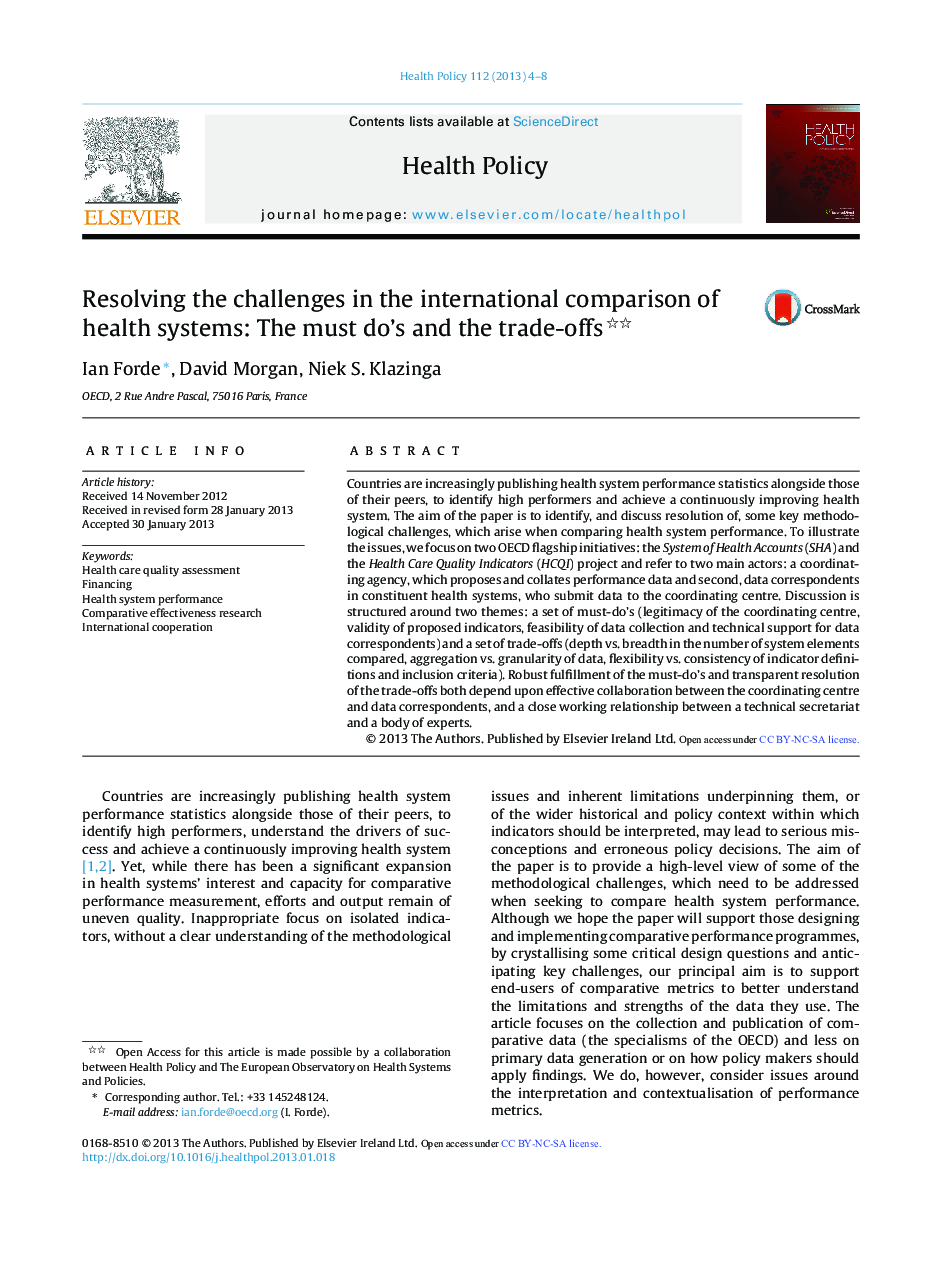| Article ID | Journal | Published Year | Pages | File Type |
|---|---|---|---|---|
| 6239910 | Health Policy | 2013 | 5 Pages |
Countries are increasingly publishing health system performance statistics alongside those of their peers, to identify high performers and achieve a continuously improving health system. The aim of the paper is to identify, and discuss resolution of, some key methodological challenges, which arise when comparing health system performance. To illustrate the issues, we focus on two OECD flagship initiatives: the System of Health Accounts (SHA) and the Health Care Quality Indicators (HCQI) project and refer to two main actors: a coordinating agency, which proposes and collates performance data and second, data correspondents in constituent health systems, who submit data to the coordinating centre. Discussion is structured around two themes: a set of must-do's (legitimacy of the coordinating centre, validity of proposed indicators, feasibility of data collection and technical support for data correspondents) and a set of trade-offs (depth vs. breadth in the number of system elements compared, aggregation vs. granularity of data, flexibility vs. consistency of indicator definitions and inclusion criteria). Robust fulfillment of the must-do's and transparent resolution of the trade-offs both depend upon effective collaboration between the coordinating centre and data correspondents, and a close working relationship between a technical secretariat and a body of experts.
